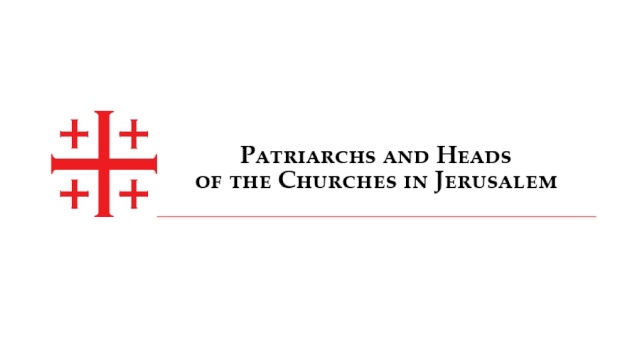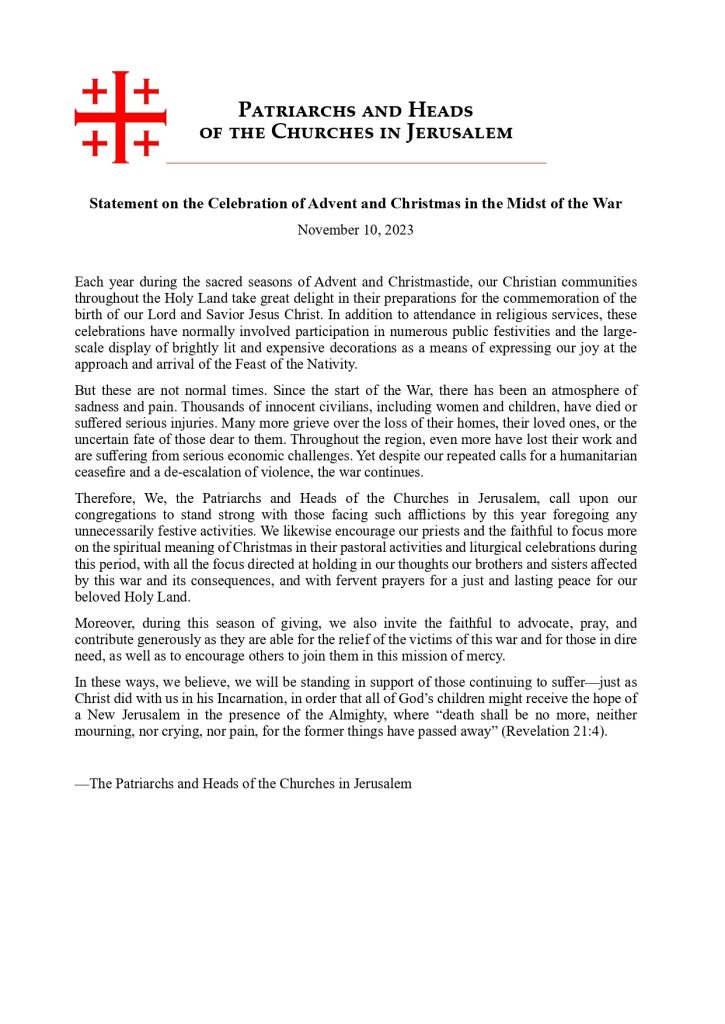Each year during the sacred seasons of Advent and Christmastide, our Christian communities throughout the Holy Land take great delight in their preparations for the commemoration of the birth of our Lord and Savior Jesus Christ. In addition to attendance in religious services, these celebrations have normally involved participation in numerous public festivities and the large- scale display of brightly lit and expensive decorations as a means of expressing our joy at the approach and arrival of the Feast of the Nativity.
But these are not normal times. Since the start of the War, there has been an atmosphere of sadness and pain. Thousands of innocent civilians, including women and children, have died or suffered serious injuries. Many more grieve over the loss of their homes, their loved ones, or the uncertain fate of those dear to them. Throughout the region, even more have lost their work and are suffering from serious economic challenges. Yet despite our repeated calls for a humanitarian ceasefire and a de-escalation of violence, the war continues.
Therefore, We, the Patriarchs and Heads of the Churches in Jerusalem, call upon our congregations to stand strong with those facing such afflictions by this year foregoing any unnecessarily festive activities. We likewise encourage our priests and the faithful to focus more on the spiritual meaning of Christmas in their pastoral activities and liturgical celebrations during this period, with all the focus directed at holding in our thoughts our brothers and sisters affected by this war and its consequences, and with fervent prayers for a just and lasting peace for our beloved Holy Land.
Moreover, during this season of giving, we also invite the faithful to advocate, pray, and contribute generously as they are able for the relief of the victims of this war and for those in dire need, as well as to encourage others to join them in this mission of mercy.
In these ways, we believe, we will be standing in support of those continuing to suffer—just as Christ did with us in his Incarnation, in order that all of God’s children might receive the hope of a New Jerusalem in the presence of the Almighty, where “death shall be no more, neither mourning, nor crying, nor pain, for the former things have passed away” (Revelation 21:4).
—The Patriarchs and Heads of the Churches in Jerusalem







